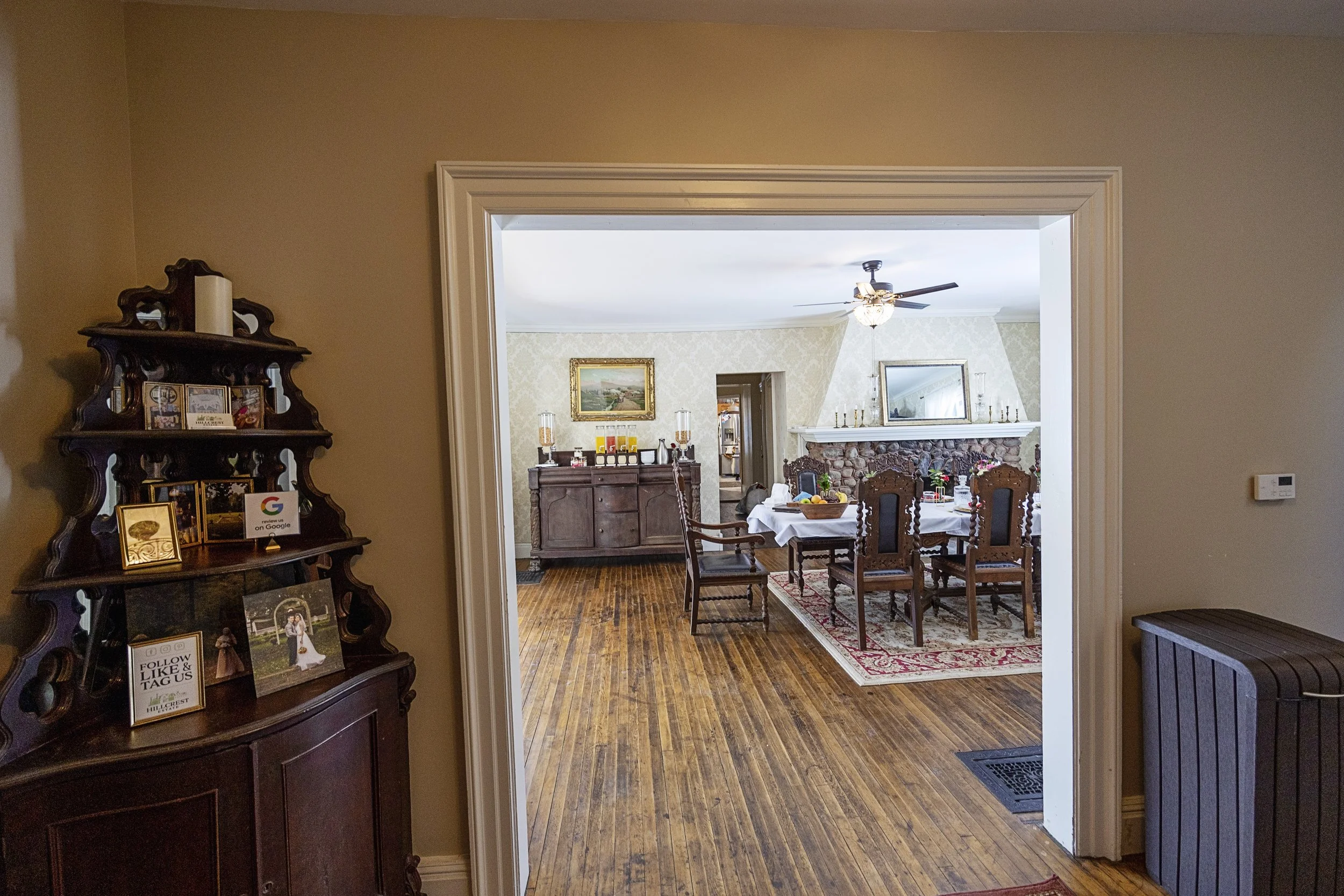The Importance of Ceremony Rehearsals and Rehearsal Dinners: What You Need to Know
Why Ceremony Rehearsals Matter at Your Rochester Wedding Venue
As a wedding venue owner, I often see couples focused on the big day itself, ensuring every detail of their wedding ceremony and reception is perfect. However, there's an important step that sometimes gets overlooked in the planning process: the ceremony rehearsal and the rehearsal dinner. These events are crucial for a smooth and stress-free wedding day. Let's delve into the purpose of each, the differences between them, and who should attend.
The Ceremony Rehearsal
The ceremony rehearsal is a run-through of the wedding ceremony, allowing everyone involved to understand their roles, the sequence of events, and the overall flow. This practice session helps to identify and resolve any potential issues before the actual ceremony, ensuring everything goes smoothly on the big day. Here are some key reasons to have a ceremony rehearsal:
Reduce Nerves: Familiarity with the ceremony layout and process can significantly reduce anxiety for the couple and the wedding party.
Clarify Roles: Everyone involved, from the officiant to the flower girl, will know where they need to be and when.
Timing: It's an opportunity to time the processional, recessional, and other ceremony elements, making sure everything fits within your planned schedule.
Coordination: It ensures that all elements, including music cues and special readings, are well-coordinated.
Positioning: We'll ensure the couple, officiant, and bridal party know where to stand, and understand their spacing for the processional and recessional.
Couple's Responsibility
It's the couple's responsibility to bring to the ceremony rehearsal the list of names of people walking down the aisle, their order, and the corresponding songs in which they should walk down the aisle. This ensures everyone is in the right place at the right time, creating a seamless and beautiful ceremony.
Who Should Attend: The ceremony rehearsal is typically attended by:
The couple
Officiant
Parents and grandparents of the couple (if they’re walking down the aisle)
Bridal party (bridesmaids, groomsmen, maid of honor, best man)
Flower girl and ring bearer (and their parents, if necessary)
Ushers
Readers or anyone with a special role in the ceremony
The Rehearsal Dinner
Following the ceremony rehearsal, the rehearsal dinner is a time for the couple, their families, and close friends to relax and enjoy each other's company before the big day. It serves several important purposes:
Express Gratitude: It's an opportunity for the couple to thank their wedding party and families for their support and hard work.
Build Relationships: It helps family members and friends from both sides to get to know each other better, fostering a sense of unity and celebration.
Final Details: Any last-minute details or changes can be discussed in a relaxed environment, ensuring everyone is on the same page.
Toast Practice: It's a chance for the best man, maid of honor, and others to practice their toasts or speeches.
Who Should Attend: The rehearsal dinner typically includes:
The couple
Immediate family members (parents, siblings)
Bridal party
Officiant (optional)
Close friends or out-of-town guests (optional)
Anyone with a special role in the wedding
Key Differences Between the Ceremony Rehearsal and the Rehearsal Dinner
Focus: The ceremony rehearsal is focused on the logistics and flow of the wedding ceremony, while the rehearsal dinner is a social event aimed at relaxation and celebration.
Location: The ceremony rehearsal takes place at the wedding venue, whereas the rehearsal dinner is usually held at a different location, such as a restaurant or a family home.
Formality: The rehearsal is often more formal and structured, whereas the dinner is typically a casual, intimate gathering.
Both the ceremony rehearsal and the rehearsal dinner play vital roles in the wedding planning process. They not only help ensure a smooth and stress-free wedding day but also provide an opportunity for the couple and their loved ones to connect and celebrate. At The Hillcrest Estate, we highly recommend incorporating these events into your wedding schedule to create a memorable and seamless experience for everyone involved. Happy planning!
Thank you so much for stopping by our blog, we hope you found this information helpful. We want to use our blog to increase awareness and support for locally owned wedding venues. Locally owned wedding venues tend to provide a higher level of expertise, service and dedication. They also have far less turnover than corporate owned or investor owned venues. As you plan your wedding we hope you will consider a locally owned wedding venue like ours. You can find locally owned wedding venues on this wedding venue map. Here is our shout out to some of our fellow locally owned wedding venues around the country: Lavender on the Lake, The Venue At Springfield estates, Main Street Wedding and Event Venue, Degas House in New Orleans, The Admiral Room at The Marin.









